Mitchell Center Stories
Want to learn more about Mitchell Center projects and people? We regularly publish stories about the work of our members and research teams.
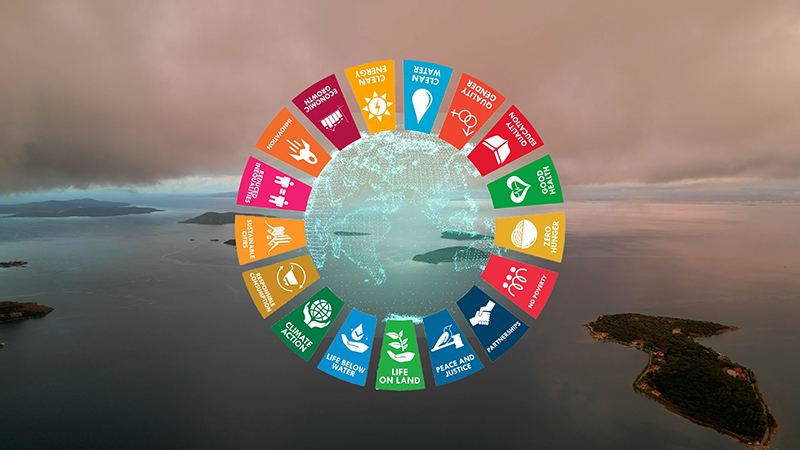
We Need This More Than Ever: Perspectives from the 2025 Maine Sustainability & Water Conference
Earlier this spring, nearly 600 people gathered at the Augusta Civic Center for the 30th Maine Sustainability & Water Conference.
The annual conference provides a forum where professionals, researchers, consultants, citizens, students, regulators, and planners gather to share information and present new findings on sustainability and water resource issues in Maine.
Some participants locked in on a single issue for the entire day, such as the Marshes for Maine’s Future session. Others moved between the rooms, distilling information from a broad range of topics — community efforts to cope with the impacts of climate change, using discarded Christmas trees for coastal dune restoration, and efforts to reduce derelict fishing gear.
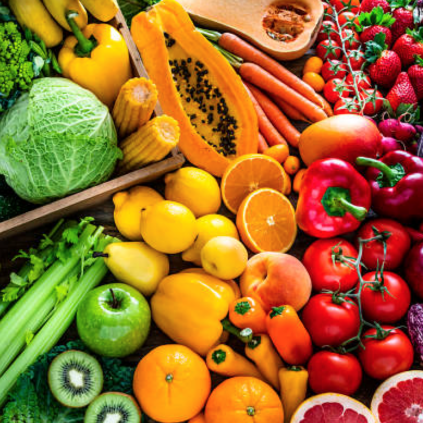
Mitchell Center Food Rescue Maine Interns Tackle a Real World Problem
Susanne Lee sometimes has to remind Food Rescue MAINE (FRM) partners that they’re working with students. Partners like Maine state government, municipalities, schools, hospitals, and private businesses.
“The students are so good at doing their jobs that I have to remind the partners that they’re actually just students. They might have a paper to write or finals that week,” said Lee, a faculty fellow and member of the Mitchell Center’s Materials Management Research Group (MMRG).
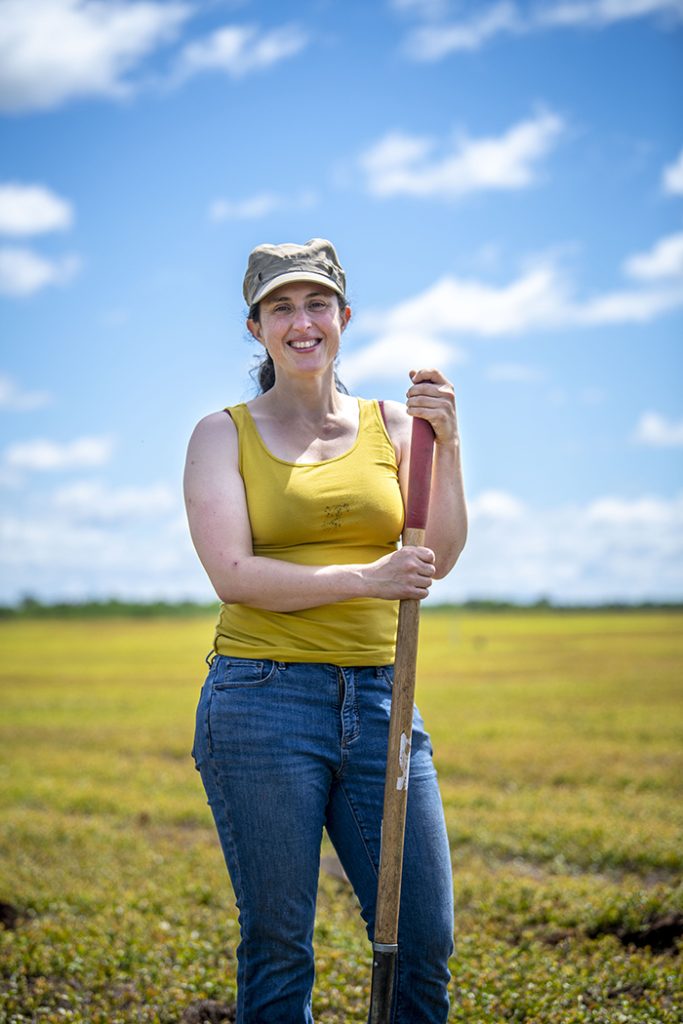
Don’t Be Blue: A Team Effort to Protect the Heritage of Maine’s Wild Blueberries
What do the tidy rows of plastic covered tunnels at Wyman’s Wild Blueberry Research and Innovation Center have to do with the future enjoyment of a juicy, wild blueberry pie?
The tunnels are part of a four-year agricultural trial designed to understand how wild blueberries, Maine’s state fruit, will respond to different climate scenarios. The project is funded by a $650,000 grant from the USDA National Institute of Food and Agriculture.
The research center was created in 2022 through a gift from Wyman’s, a wild blueberry grower (managing 18,000 acres of berries) and processor based in Milbridge, Maine. It’s the first time there has been a designated wild blueberry research site on the UMaine campus in Orono/Old Town.
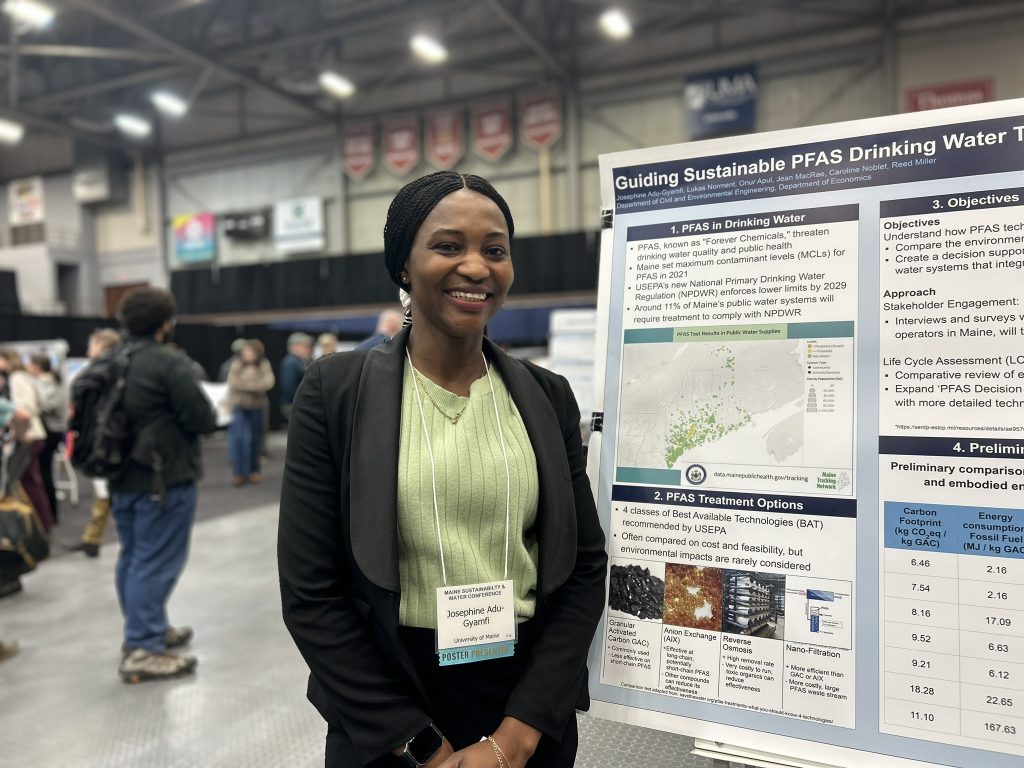
Sustainability Graduate Fellow Goes with the Flow for Safe Drinking Water
“Where I grew up in Ghana, I became aware of the challenges many communities face in accessing clean and safe drinking water. That experience sparked my interest in environmental and then water quality research,” said Josephine Adu-Gyamfi.
These formative experiences coupled with her passion for problem-solving steered her educational journey. In Ghana, at KNUST-Kumasi, she received an undergraduate degree in geological engineering followed by a master’s in water resources engineering and management.
Hungry for more advanced training, Adu-Gyamfi, with her self-proclaimed can-do attitude, decided to pursue a second master’s at UMaine in civil and environmental engineering with a focus on water and the environment.
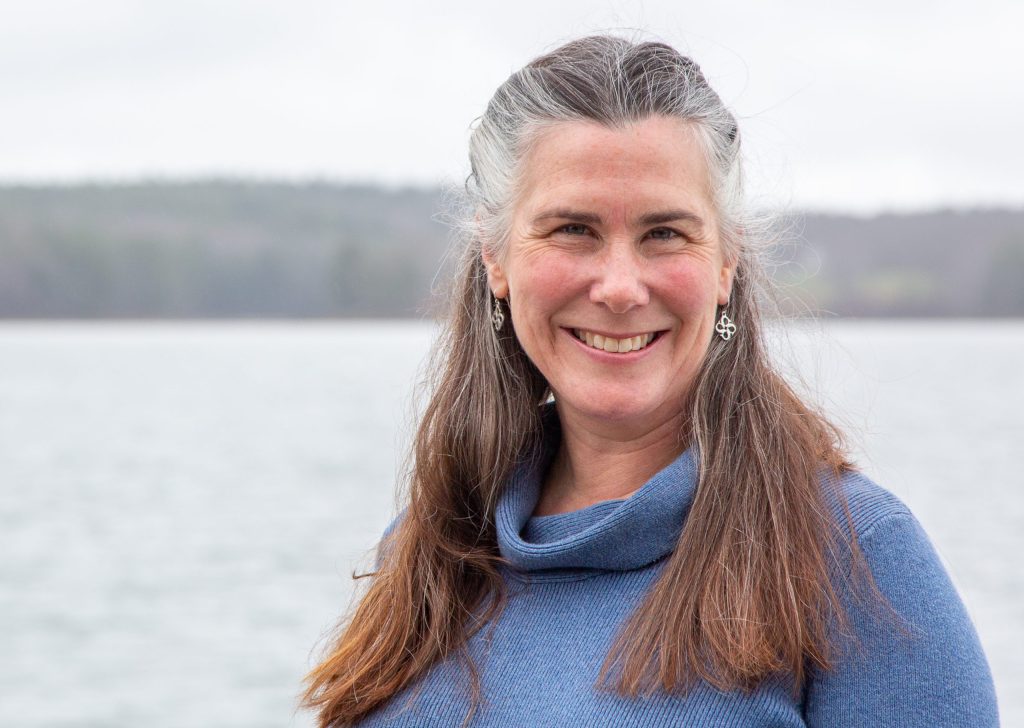
Melding Art and Science to Strengthen Resilience in the Damariscotta River Estuary
In 2023, Heather Leslie stepped onto California’s Santa Catalina Island with a well-developed literary goal. She’d long wanted to write a book about her decades of studying the interconnectedness of humans and nature within small-scale Mexican fisheries. Leslie is University of Maine professor of marine sciences and a Mitchell Center faculty fellow.
As part of her sabbatical, Leslie was visiting the island for a week-long intensive called the Wrigley Institute Storymakers program hosted by the University of Southern California. The program’s goal is to train scientists in the art of storytelling.
She stepped off the island a week later with a completely new idea to bring back to Maine.
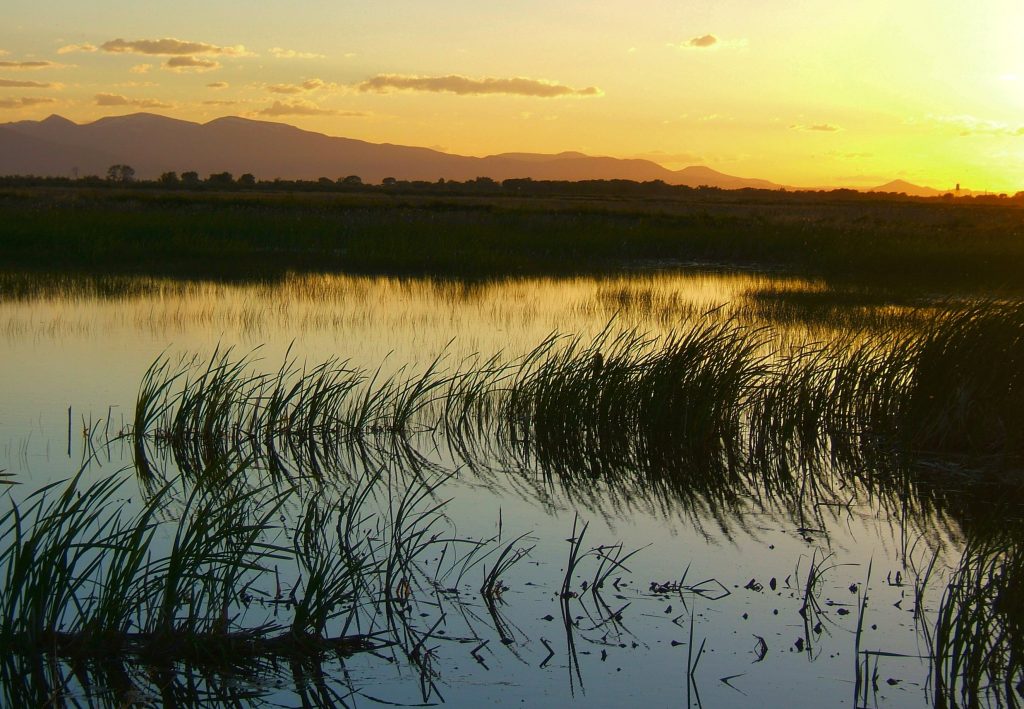
As innovative training program in conservation ends, its legacy lives on beyond UMaine
Conservation is a multi-dimensional issue that goes beyond preserving the environment. Conservationists not only need ecological expertise, but also have to understand the impact of conservation on the economics and culture of an area, be able to interact with the public about issues of conservation and so much more.
Through a program funded by the National Science Foundation (NSF), University of Maine graduate students have had the opportunity to cultivate the interdisciplinary skills required for conservation. UMaine’s NSF Research Traineeship (NRT) Program in Conservation Science and Practice has reached the end of its five-year term, but it has sent UMaine graduates off with a more holistic approach to conservation and started a legacy of similar programs at UMaine.
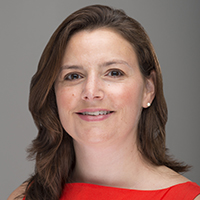
Caroline Noblet’s Secret to Talking About PFAS: Be clear about what we do, and don’t, know
The harmful health impacts of a group of chemicals known as PFAS is a pressing issue facing Mainers, as it increasingly found in our soil, water, and bodies. The science behind PFAS is complex and new, and despite the urgency of the situation, the facts can be hard to communicate as it evolves. One researcher who has become adept at helping people navigate the growing environmental crisis is Caroline Noblet, associate professor of economics and member of the University of Maine Senator George J. Mitchell Center’s PFAS Research Initiative.
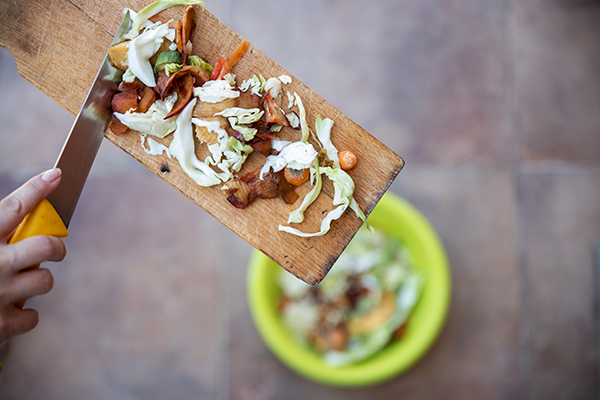
UMaine-led first-of-its-kind food waste study shines light on where food is wasted in Maine
September 25, 2024
Addressing the breadth of issues related to food surplus, loss and waste — which span across economic, social and environmental sectors — is a herculean task for any state.
As Maine works to better understand and address the complex problem of food waste, the Maine Department of Environmental Protection (DEP) tapped a team of researchers, including those from University of Maine’s Senator George J. Mitchell Center for Sustainability Solutions, to produce the Maine Food Loss and Waste Generation Study, a first-of-its-kind investigation that provides key Maine food waste data.
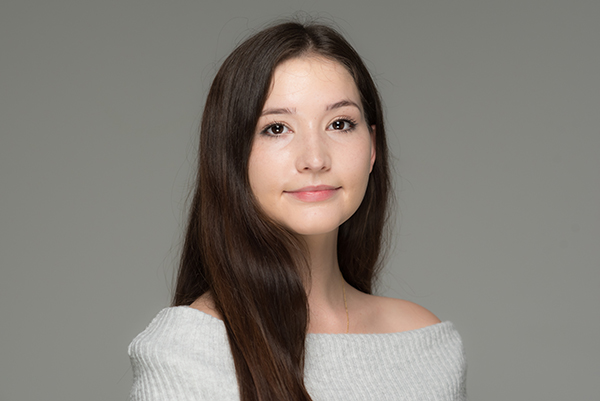
Jasmine Lamb: A window into energy justice on Wabanaki lands
August 30 2024
For Jasmine Lamb, energy justice is about ensuring that marginalized communities have equitable access to the benefits of energy production and a say in the decision making processes about how their energy is produced. The Ph.D. student in the Ecology and Environmental Sciences Program and member of the Passamaquoddy Tribe at Pleasant Point works to identify barriers and opportunities for renewable energy and energy efficiency adoption. Through her work, she is helping to lead the charge for community actions advancing renewable energy and energy efficiency adoption in communities across Maine, including the five sovereign Wabanaki tribal governments.
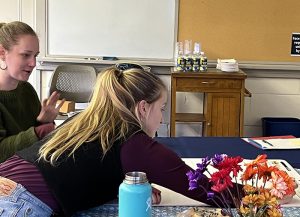
Interdisciplinary research met creative collaboration through Mitchell Center’s Sustainability Graduate Fellows program
August 5, 2024
Academic research often happens in silos, confined to specialized departments. Compartmentalizing research can make it more difficult to solve real-world problems, or approach them in new and creative ways.
Through the 2023-2024 academic school year, the Mitchell Center for Sustainability Solutions hosted an experimental cohort of 11 graduate students across seven different departments for networking, career building workshops, and peer-to-peer learning. This first-of-its-kind project for the university brought together an exceptionally wide range of disciplines, and the results sparked new life into the research of graduate students across academic fields, from computer science to soil science.
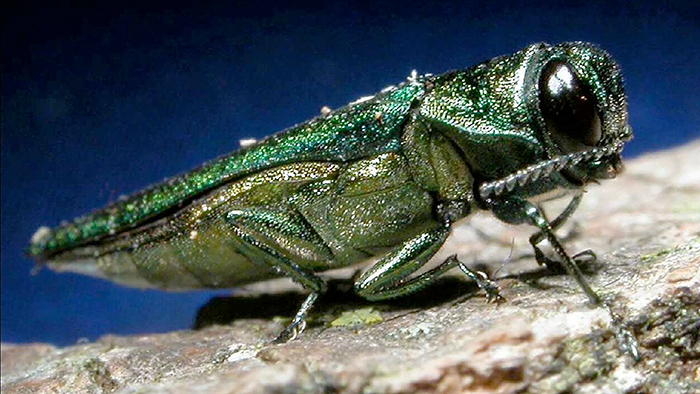
For UMaine emerald ash borer researchers, preparing for the inevitable is an act of hope
July 19, 2024
Emerald ash borer — or “EAB,” as it is known by those who study it — is an invasive insect that will decimate ash tree populations in Maine, as it has done in so many other places across the country. It’s not a matter of if, but when.
At the UMaine, that inevitability is not met with despair, but hope, thanks to years of interdisciplinary research supported by the Mitchell Center for Sustainability Solutions. Together, the Wabanaki Nations, UMaine’s dedicated researchers and the collaborating state entities responding to EAB have been able to develop innovative management and adaptation strategies that integrate Indigenous knowledge as a guiding influence to deal with the invasive pest — and, hopefully, preserve ash trees for generations to come.
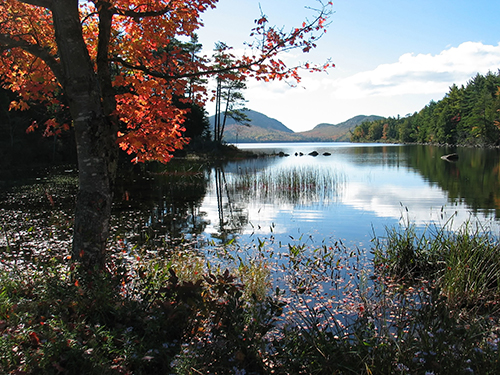
Maine lakes are worth $14 billion, according to UMaine study
June 3, 2024
Anyone who has been to a Maine lake can feel their value — its beauty, the rich wildlife, the memories created there — but communicating that value to policy makers when they are deciding where to allocate funds for conservation can be challenging. Thanks to a University of Maine study supported by the Senator George J. Mitchell Center for Sustainability Solutions, advocates for Maine lakes now have a data-backed value for Maine lakes to support their efforts to preserve them: a staggering $14 billion.
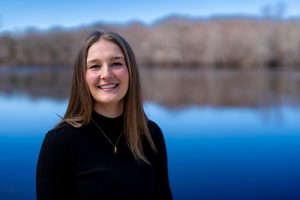
Melissa Genoter: Finding a career in a love for Maine’s outdoors
June 3, 2024
Melissa Genoter’s experience at the University of Maine turned her love of the outdoors into an impactful research project — and a post-graduate career. Thanks to internships through the Senator George J. Mitchell Center for Sustainability Solutions and the connections she made with fellow students through outdoors clubs, Genoter has established herself in Maine’s environmental work and will continue to work towards building a better environment.
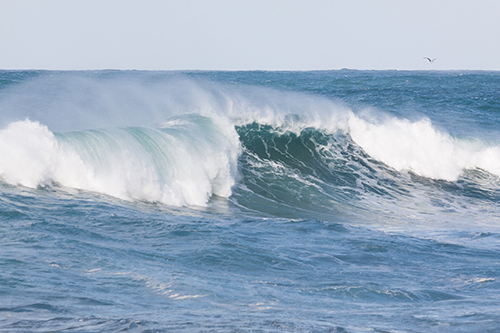
Resilience is Key: Interns take on shoreline erosion with Maine DEP
May 20, 2024
Long before the devastating winter storms of 2023-2024, it was clear that Maine’s coastal communities were becoming increasingly vulnerable to the impacts of storm surge and sea-level rise. One important way to prepare for more extreme storms is to develop resilient infrastructure, which is exactly why the Maine Department of Environmental Protection sought help from Mitchell Center faculty and students.
The collaborative project is focused on the growing problem of shoreline erosion along Maine’s coast, which can severely erode beaches and coastal highways and damage boats and buildings.

Susi Moser Highlights Mental Health Concerns of the Sustainability Workforce
May 16, 2024
Climate change can be a worldwide source of anxiety, depression, and mental exhaustion; this is particularly true for the sustainability workforce, especially those who directly confront its impact. Many researchers, government employees, public safety workers, reporters, and other professionals deal with climate change impacts on a daily basis, but their psychological wellbeing is often dismissed due to the presumed mental resolve that their jobs require.
On March 28th, Dr. Susanne Moser gave the keynote address to the 500+ attendees at the 2024 Maine Sustainability & Water Conference. Her talk, Adaptive Communities Need Adaptive Minds: Navigating the Psychosocial Challenges of a Planet in Crisis, directly addressed the psychological struggles felt by sustainability professionals.

Are PFAS on My Plate? Assessing Maine Anglers’ Preferences for Fish Consumption
April 15, 2024
Dr. Caroline Noblet, an Associate Professor in UMaine’s School of Economics and Faculty Fellow in the Mitchell Center, is leading a new project to survey Maine fishers about their fish consumption and harvest habits. With support from the Maine Department of Inland Fisheries and Wildlife, her team will gather information to support the safety of people who eat Maine fish, and the knowledge of public officials who create health advisories. Recreational fishing is the main source of wild freshwater fish consumption throughout Maine, so accurate information on the health of Maine’s waters and fish is important to communicate to the public. Beginning in Spring 2024, the team is planning to survey people with Maine fishing licenses about their fishing habits and their knowledge of environmental issues from contaminants like mercury or PFAS (perfluoroalkyl and polyfluoroalkyl substances).

Wildfires in Maine. What’s Next
March 2024
Regions like Nova Scotia and Quebec have recently experienced some of their largest, most dangerous wildfires. This has directly affected many of us, as the smoke covered Maine throughout most of this past summer. The East Coast is vulnerable to wildfires; Maine is vulnerable. We cannot safely hide behind East-Coast weather anymore. Right now, we have a chance to prevent and prepare for damage that could affect our homes. Incredible work is being done with this in mind. This session, led by David Ludwig and Kent Nelson, will feature professionals from across the state; come learn about how climate change has impacted our forests, what is currently being done to change this, and what you can do to help protect the pine trees we place on our flags.
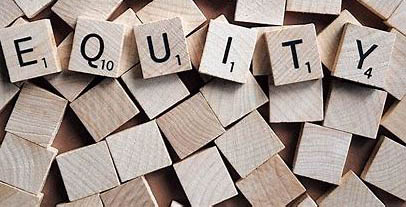
Mitchell Center expands its roles in equity initiatives
January 2024
From its inception, the Mitchell Center’s work with community partners has emphasized issues of diversity, equity and inclusion. In 2020, the Governor’s Office of Policy Innovation and the Future (GOPIF) asked the Center to develop a road map for strengthening the equity outcomes of Maine’s Climate Action Plan.
More recently, the Mitchell Center was asked to assume a larger role in the next State Climate Action Plan through the Equity Engagement Project. This effort will ensure that the populations in Maine most impacted by climate change are aware of, and have the opportunity to influence, the State’s climate programs and policies. The project will engage with tribal communities, people of color, immigrant communities, older adults, youth, people without reliable access to transportation, recipients of energy assistance benefits and other low-income and disadvantaged groups.
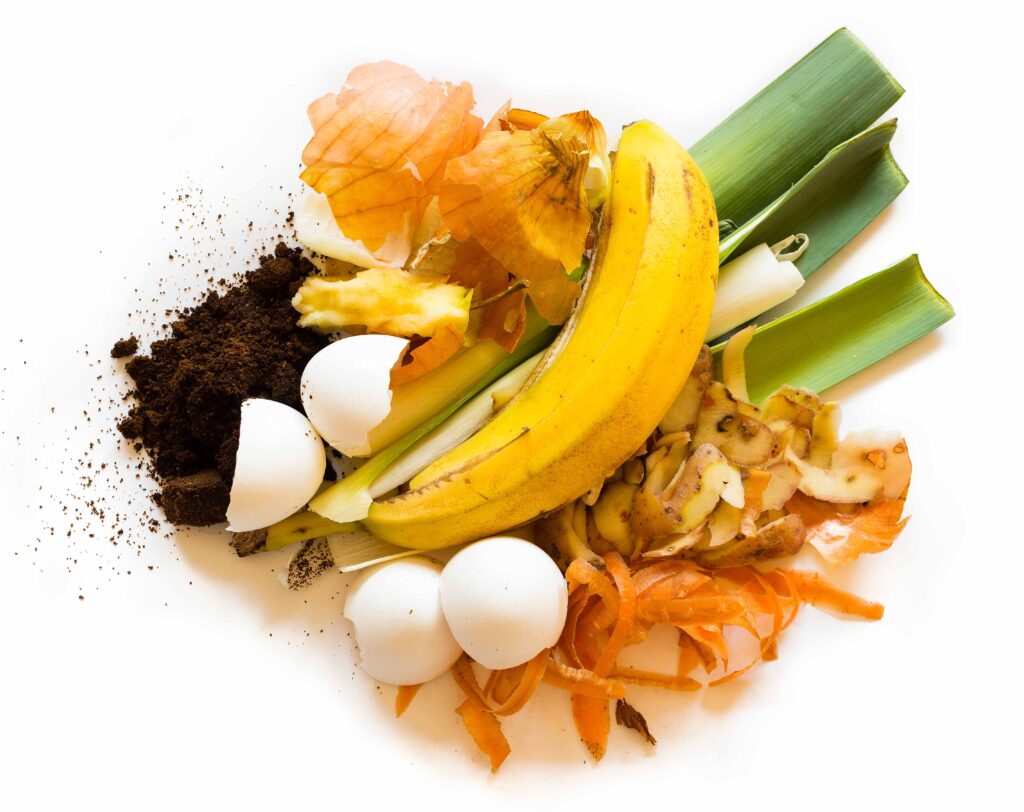
Mapping Meals: A Geographic System Searching for Food Waste
January 2024
On November 20, 2023, University of Maine graduate student Courtney Baker gave a presentation on the development of a new food waste management tool.
According to Baker, food is the largest part of the solid waste stream in Maine. Most of the food that doesn’t get eaten ends up in landfills across the state, which presents a number of problems including wasting money and resources, harming the environment, and preventing good food from getting to those who might need it.
In response, Food Rescue MAINE, a Mitchell Center program, is working to launch the Maine Circular Food System Geological Information Systems (GIS) Map and Resource Locator.
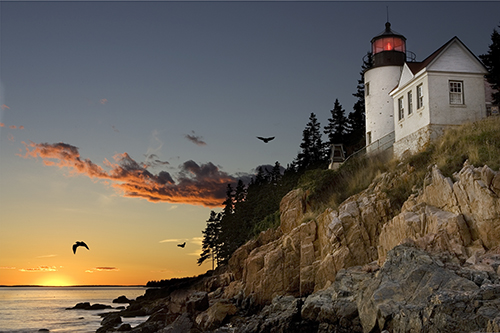
The Future of Climate Migration in Maine
January 2024
On September 11, 2023, Vanessa Levesque gave a talk at the Mitchell Center as part of the Sustainability Talks series. “Vacationland or Climate Migrationland?” provided information about climate change as a potential driver of migration and what that might mean for Maine communities.
“People have been moving away from the places they love (or don’t) to new homes with hopes for a fresh start for as long as we’ve been on Earth,” said Levesque. “Further, these past migrations have often disadvantaged Indigenous, Black, and low-income people.”
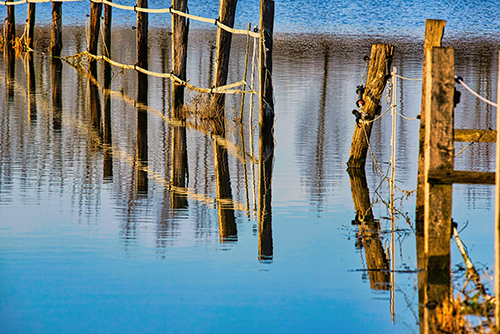
Leaving the NEST: A final report to NOAA on climate migration
November 2023
Last month, the Northeast Safe & Thriving For All (NEST) project team released their final report to the NOAA (National Oceanic and Atmospheric Administration) Climate Program Office presenting their findings on climate migration. The NEST project is composed of researchers, experts and practitioners in the Upper Northeast with an interest in the potential for and effects of climate migration specific to these regions. The Upper Northeast is defined by NEST as Maine, New Hampshire, Vermont, western Massachusetts, and upstate New York, which are areas perceived as “climate havens”.
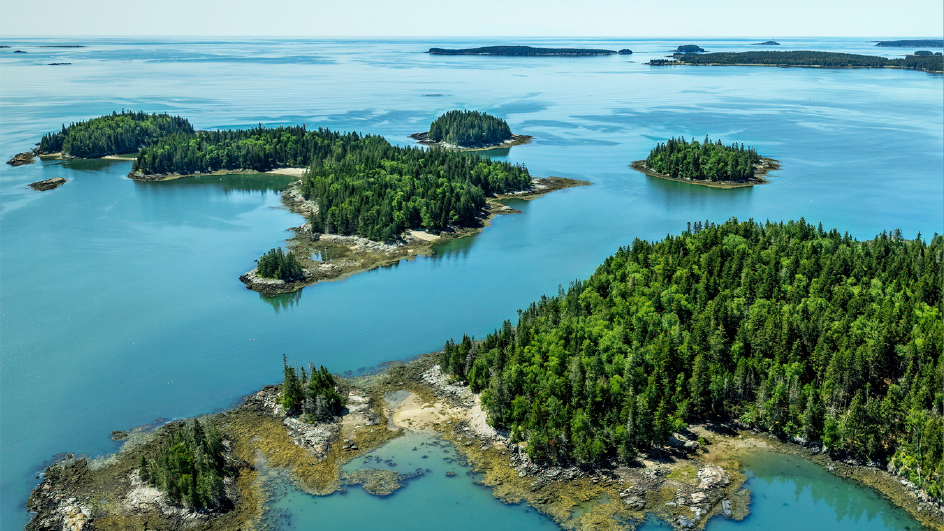
“Our Maine”: New Book Captures Maine’s Uniqueness
November 2023
From alpine summits to blueberry barrens, freshwater wetlands to estuaries, and everywhere in-between, Maine offers a brilliantly diverse natural landscape to be explored.
“Our Maine”, a newly released book edited by Mitchell Center faculty fellows Aram Calhoun and Malcolm Hunter in collaboration with Kent Redford, gives readers an opportunity to explore the natural heritage of the state and learn about the many species and ecosystems found within it. The book includes stories, and other information from experts and academics, members of the Wabanaki, conservation groups, and state agency staff. Additionally, “Our Maine” features beautiful photographs of Maine’s natural landscapes and some of the signature species associated with them.
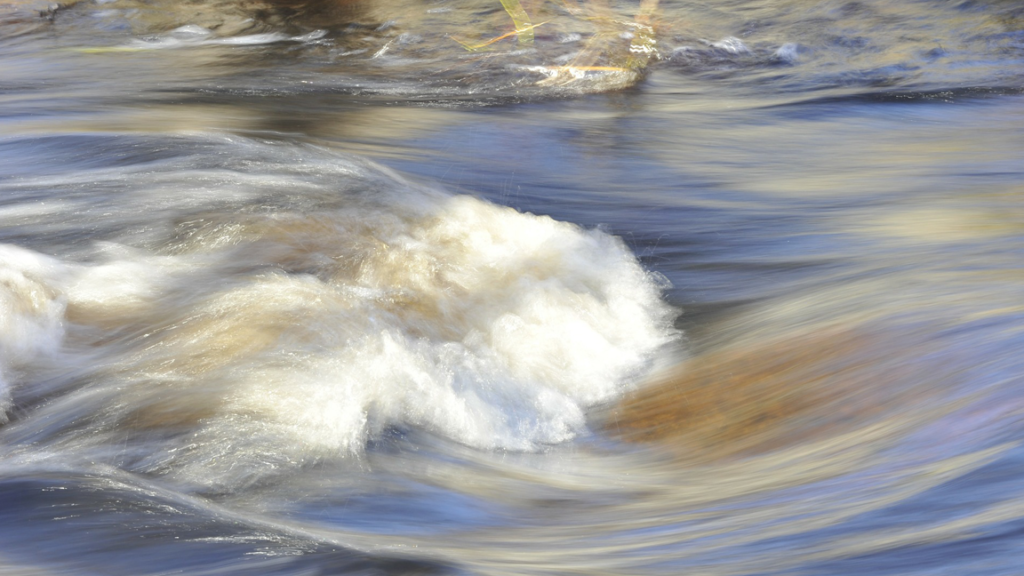
Resourceful Research: Three water resource projects get underway
October 2023
On September 1, 2023, three new research projects launched under the Maine Water Resources Research Institute (WRRI) 104b (state-level) program. The WRRI 104b program, funded through the U.S. Geological Survey, provides annual grants for faculty members of 4-year educational institutions in Maine in collaboration with partner organizations. These grants are designed to support projects centered around finding sustainable solutions to better manage Maine’s water resources. The Mitchell Center for Sustainability Solutions leads the Maine WRRI program and handles funding for all projects. This year, three faculty members from the University of Maine were awarded research grants based on a competitive, peer-review process. Their projects are focused on innovative strategies for irrigation in agricultural settings, monitoring of mountain ponds to evaluate potential effects of climate change on water quality, and effectiveness of biochar on blueberry growth and maintenance.
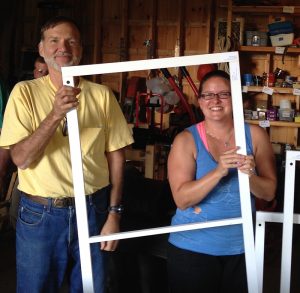
Klein receives $1.125 million EPA grant for research in community-based sustainable energy
August 2023
In recent years, Maine has seen great interest in renewable energy infrastructure. With the state’s renewable portfolio standard set at 80% by 2030, installation of solar panels and wind turbines have been on the rise. However, it’s often up to other organizations to assist underserved communities to develop sustainable energy systems at the local level.
Sharon Klein was recently awarded a four-year, $1.125 million grant from the Environmental Protection Agency to study how statewide local energy action networks (LEANs) can support community-initiated, community-engaged, and community-owned renewable energy and energy efficiency in underserved communities, with a strong focus on Wabanaki tribes and rural lower income communities within Maine’s borders.
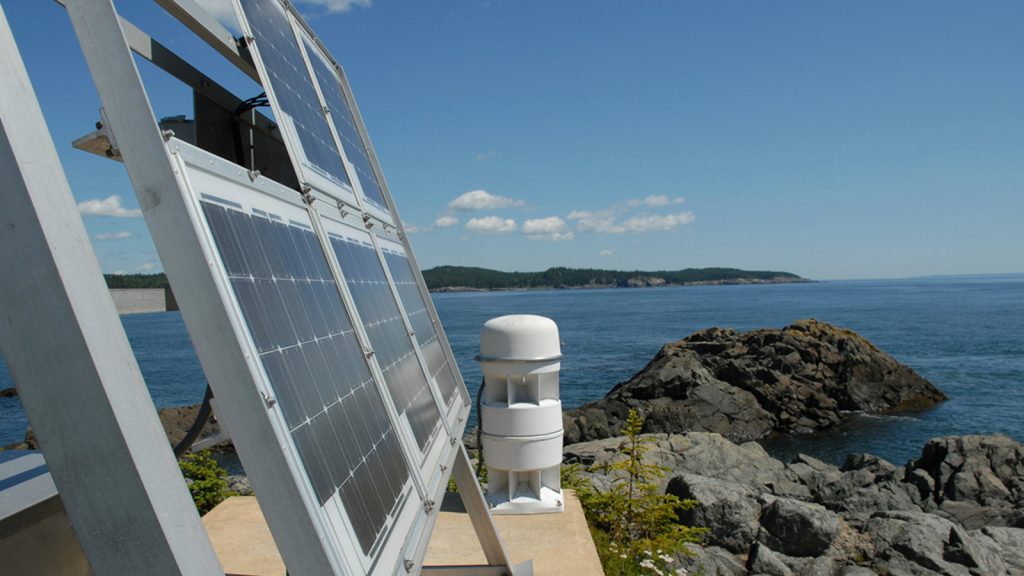
Sharon Klein is helping to galvanize community energy in Maine
May 2023
Look to your right or left on the interstate in Maine, and you’re almost as likely to spot a charging station or field of solar panels as you are a toll plaza. Maine’s rush to promote sustainable energy is generally considered positive and necessary, but, like a Tesla racing up I-95, it risks leaving some smaller communities behind.
Dr. Sharon Klein is interested in energy justice, or making sustainable energy more accessible to underrepresented groups. She believes that community energy, or collaborative efforts among neighbors to address energy issues, could be the key to making sustainable energy available to all communities. Specifically, she is studying how workshops to provide residents with energy-saving window inserts can kickstart community energy initiatives.
“Part of what needs to happen in each of these different communities is to start that conversation about what the energy goals are for different community members, for the local government, and everybody that’s involved,” she said. “A community workshop to build window inserts can be a catalyzing event that starts that process.”

Can Maine restaurants get reusable packaging ‘to go’?
April 2023
The thrift store in your local church’s basement might be doing more for the community than saving families from spending $40 for jeans. Not only can systems of reuse, like thrift stores, reduce waste, they strengthen bonds between neighbors and make communities more resilient to hardship.
“Anytime we see any sort of big economic or cultural shock, a lot of times traditional supply chains are broken,” Dr. Cindy Isenhour said. “But when you have more localized and resilient systems for procurement, they can help you weather those storms.”
Isenhour studies the way that people think about and deal with material waste. With funding from the Mitchell Center, she and Jared Wildwistle, a UMaine Masters graduate, have been studying the feasibility of a different kind of reuse system in Maine: reusable take-out packaging.
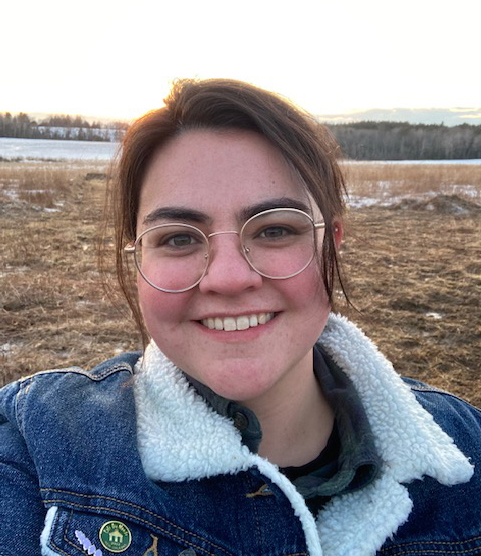
Mudflat meets world: Hillyer’s research reaches a global audience
March 2023
Gabby Hillyer has been a member of the University of Maine community going on seven years, and for approximately five of those years she has been telling and re-telling a story about a stolen bucket. Hillyer is a Ph.D. student in the Ecology and Environmental Sciences program at UMaine. She also participates in the National Research Traineeship Program in Conservation Science and serves as the project coordinator for the Maine Shellfish Learning Network (MSLN), a novel partnership that connects harvesters and others from up and down Maine’s coast to better address the multifaceted issues facing their shellfisheries. Both the MSLN and her graduate research on the coast of Maine emerged from her involvement with an organized effort to strengthen coastal economies at the Mitchell Center. Hillyer has a robust list of accomplishments on her resume, but the bucket drifters always seem to float to the top.
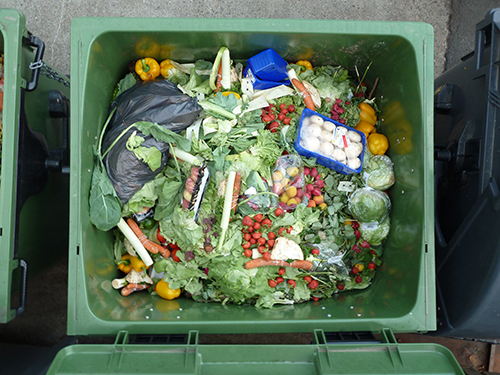
Career Pathways Through Undergraduate Research
January 2023
Katie Tims, Class of 2021, and Dominique DiSpirito, Class of 2022, are recent University of Maine graduates who found promising footholds in the fields of sustainability and materials management in Maine, in part because of their undergraduate research experiences. As interns, both students worked on the Mitchell Center’s Food Waste Management project. The project grew from work started in 2019 by the interdisciplinary Materials Management team to find solutions to Maine’s solid waste problems. In research done by the team, food waste was ranked by stakeholders as a major area of concern. The food waste team collaborates with partners to research and pilot solutions to reduce food waste, keep organics out of landfills, and address food insecurity in Maine.
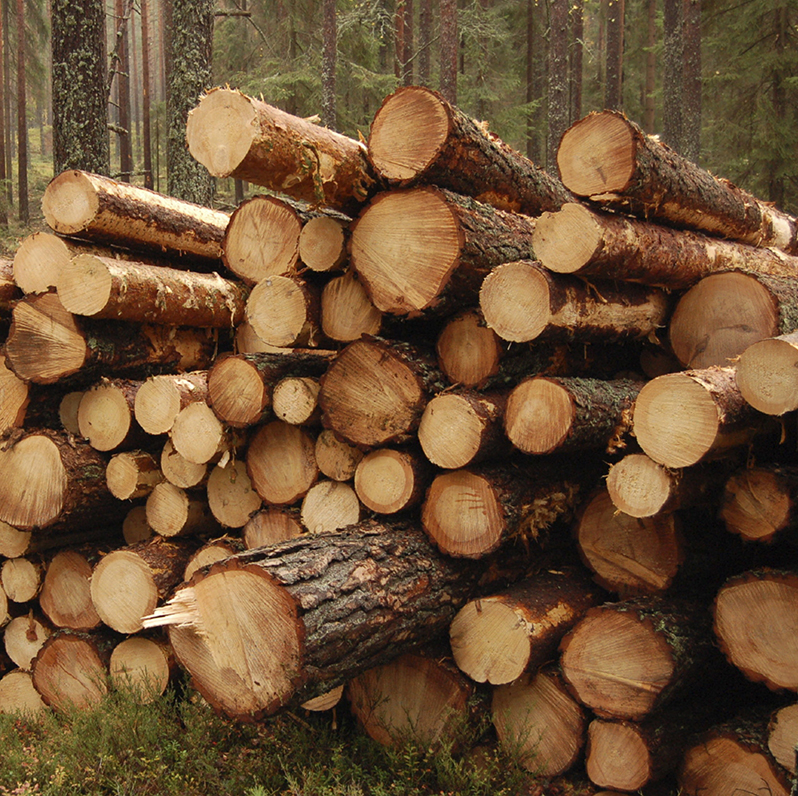
Roger Milliken meditates on the ethics of industry
January 2023
In a talk on November 28, Roger Milliken discussed the conflict between western culture and the sustainability of life on Earth from his unique ethical perspective as a Maine forest manager and environmentalist. Milliken has always had a vested interest in Maine’s forests, partly because its past, present, and future is intertwined with the story of his own heritage. One of Milliken’s core arguments is that the destruction of the natural world and degradation of humans’ quality of life is a result of a western culture rooted in “individualism, separation, and dominion.” Milliken did not pull this claim out of thin air or tabloids, but from his own family’s history.
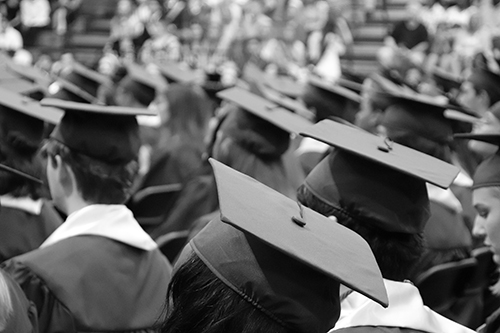
New internship program empowers the next generation of sustainability leaders
November 2022
Conjure an image of the prototypical intern: you might imagine a bored 19-year-old fetching coffee and making photocopies, or you might imagine that student struggling to do the work of a full-time professional for free. In these scenarios, interns are either tossed in head-first or beached. Last summer, however, students in the Mitchell Center’s pilot internship program were taught to swim. They were challenged to work with faculty, stakeholders, and each other to tackle real issues facing communities in their backyard, all with the necessary funding, research training and mentorship to promote their success.
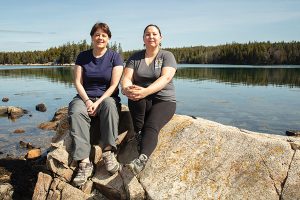
Reconnecting Wabanaki Communities to Coastal History
September 2022
Maine’s coast is dotted with over 2,000 shell heaps, sites where Wabanaki ancestors would gather to harvest and eat shellfish, producing deposits of shells ranging in size from small piles to 30-foot-deep mounds. These collections of exceptionally well-preserved materials can help scientists reconstruct a record of past lifeways and environments. For hundreds of years, scientists and industries have extracted a wealth of materials and history from some shell heaps without consultation or collaboration with those whose ancestors created them. As sea level rise accelerates, these losses are compounded by increasing erosion. Dr. Bonnie Newsom is one of the scholars urgently seeking to reconnect Wabanaki people to shell heaps before they disappear forever.
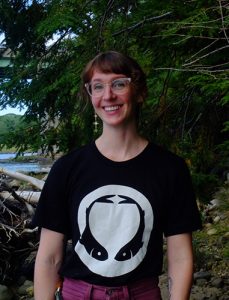
Cultivating Coastal Stewardship in the Damariscotta Estuary
August 2022
Survey the picturesque Damariscotta River and, among the many moorings and oyster farms, you might spot youthful figures hunched over the mudflat, waders on, clam rakes in hand. These are not shellfish harvesters, but local students gathering data to support the sustainable management of an ecosystem and industry.
This summer, Sarah Risley, a UMaine graduate student based at the Darling Marine Center, is leading a team of university and high school students to study the shellfish populations of the upper Damariscotta estuary. They are also recording the local knowledge of harvesters who know the ecosystem the best.
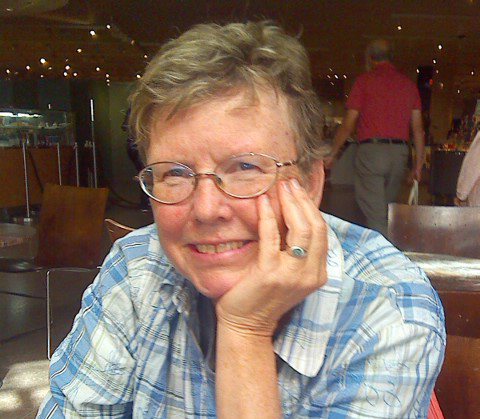
Difference-making is about risk-taking
July 2022
If all the researchers in a given discipline compiled their peer-reviewed research, what would it amount to? Would it better address the world’s greatest problems, or would it falter?
This is the query Dr. Linda Silka raised this past June, as she stood in front of several hundred members of the Society for the Psychological Study of Social Issues (SPSSI) at their summer conference in San Juan, Puerto Rico. Silka, a Senior Fellow with the Mitchell Center, serves as the President of SPSSI, an organization of 3000+ social and behavioral scientists focused on engaging with the world’s critical social and policy issues from a psychological perspective.
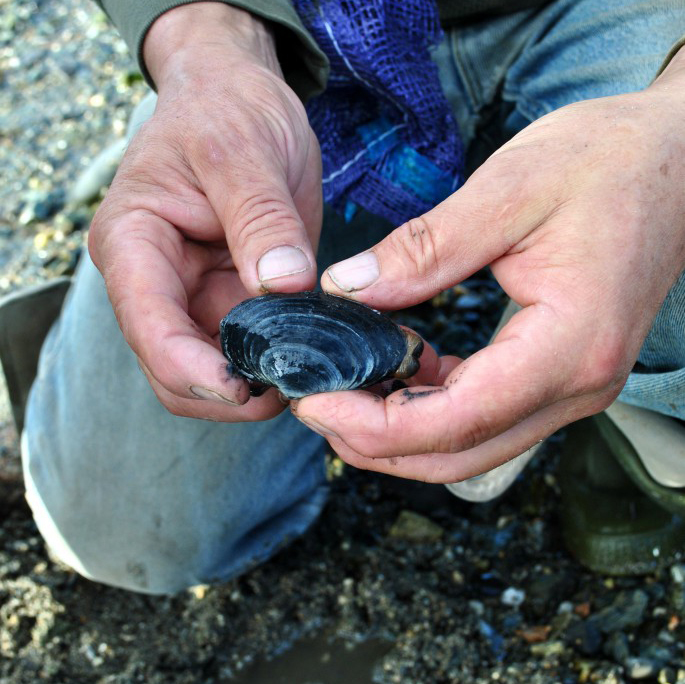
The Mudflat: Creating space and making connections to support shellfishing
April 2022
Shellfishing is deeply embedded in the foodways, cultures and traditions of communities all along the coast. This livelihood also contributes significant value to the marine economies and sustenance fishing cultures of coastal areas. Although shellfishing is crucial for many coastal communities, it faces some daunting challenges including water quality problems, increasing pressure from predators like green crabs, shoreline access, and more. How can a new collaborative website help to sustain it?
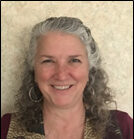
Moving from polarization to partnership
March 2022
How can we move beyond the notion that there are “others” among “us” and “find a common place that we can all call home”? This is one of the questions that Judy East will explore in her keynote address at the 2022 Maine Sustainability & Water Conference on Thursday, March 31.
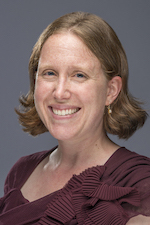
Managing the risks of “forever chemicals”
February 2022
PFAS, also known as “forever chemicals” due to their persistence in the environment, are at the center of a growing environmental and public health crisis in Maine, with devastating effects that are being felt across the state. These chemicals have been linked to health problems and have now been detected in well water, farm soils, farm products including milk, wildlife, and people’s bodies in Maine. The Maine Dept. of Environmental Protection reached out to Laura Rickard for help training agency staff in communicating about PFAS risks as part of their overall response to this crisis.
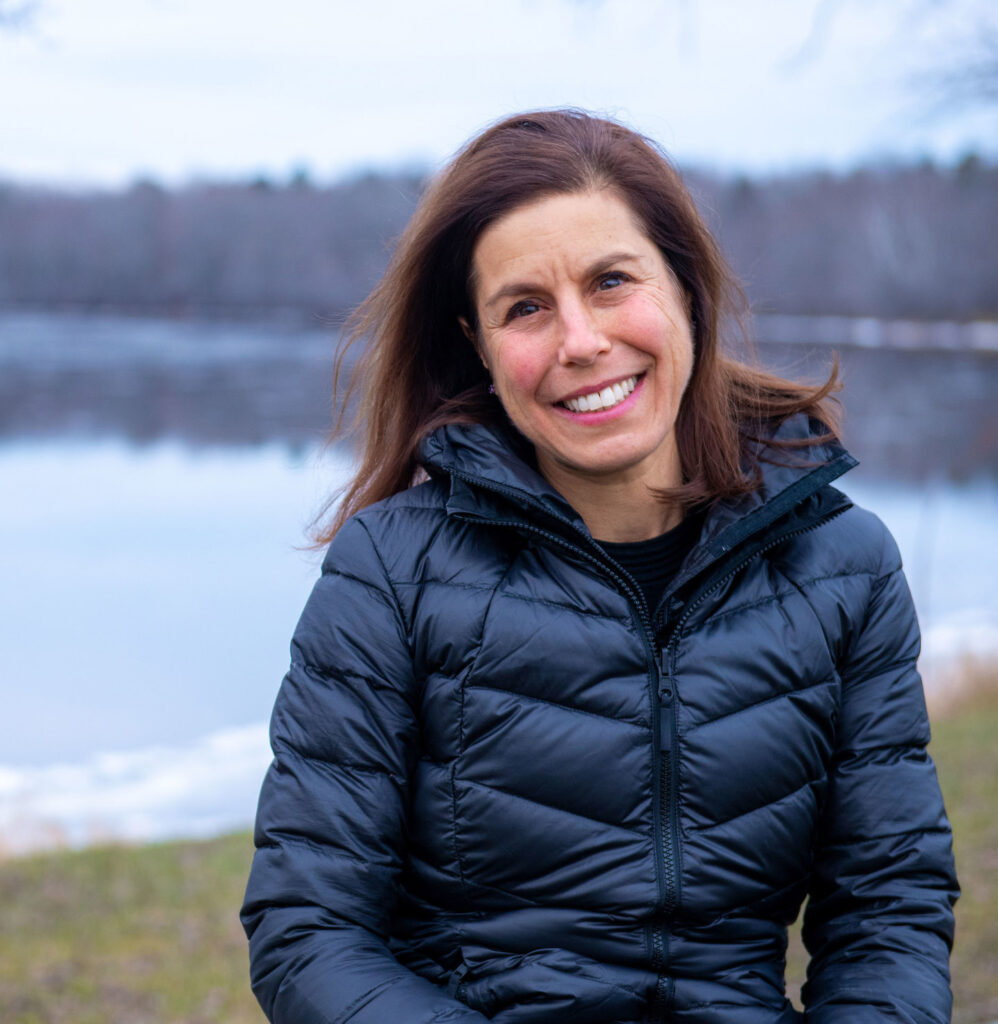
‘Disciplinary Nomad’: Jessica Jansujwicz finds her place as researcher, teacher, mentor, leader
January 2022
Jessica Jansujwicz has charted a path from ecology to sustainability science that eventually led her to the Mitchell Center and a career focused on community-engaged research, teaching and mentoring undergraduate and graduate students, and a leadership role with Maine Sea Grant.

Raising awareness, inspiring action and developing tools to reduce food waste in Maine
November 2021
As part of the ongoing work of Food Rescue MAINE, a team of undergraduate students is working this fall to engage and educate people to help reduce food waste. Along the way they are learning and developing skills, stepping into leadership roles, and connecting with professional networks. And their work provides real benefits for Maine communities.
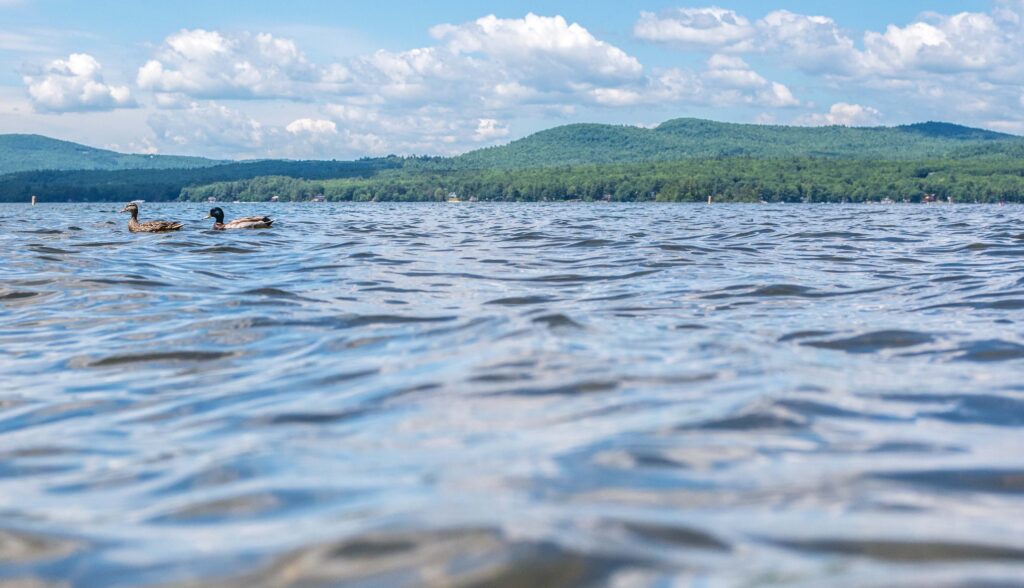
Return on investment: Making the business case for conserving watersheds
October 2021
A research team led by Adam Daigneault explored the benefits and costs of scaling up conservation in the Sebago Lake watershed to protect a pristine drinking water source and provide other ecosystem services.
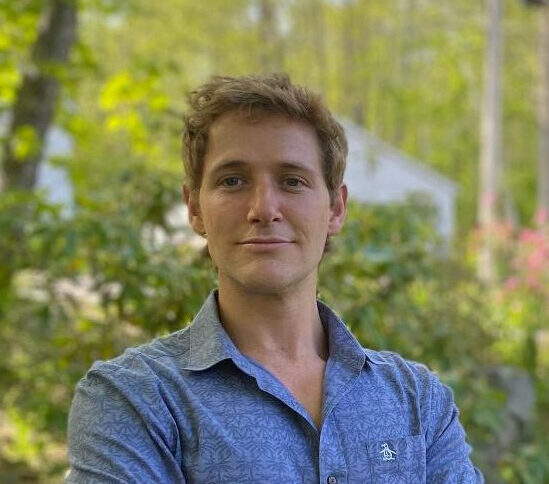
Coming home to help ‘craft the best possible future’ for Maine
July 2021
From ocean acidification to climate adaptation, Parker Gassett works with Maine communities to build resilience in the face of change.
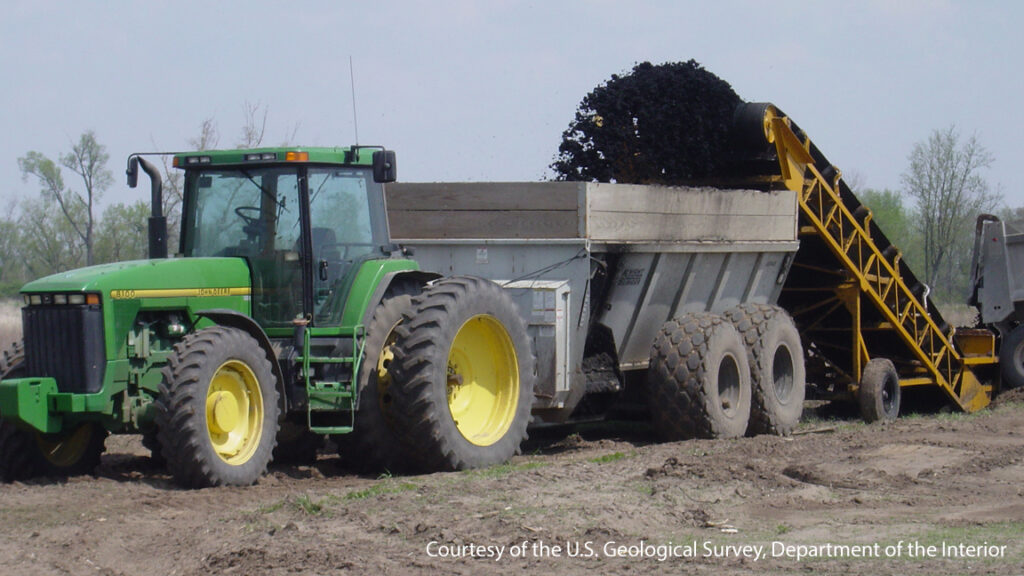
Mitchell Center researchers examine options for managing PFAS
June 2021
In response to concerns raised by many different stakeholders, an interdisciplinary team of researchers is gathering and documenting knowledge of where PFAS are in Maine and how they move through soil, water, wildlife and food.
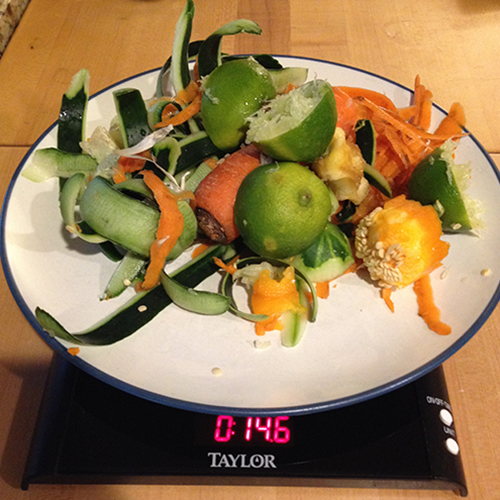
‘Maine Food—Too good to waste’: Students lead the way to food waste solutions
May 2021
A team of eight undergraduate students, led by Mitchell Center Faculty Fellow Susanne Lee, are working together to pilot solutions that can reduce both food waste and food insecurity in Maine.
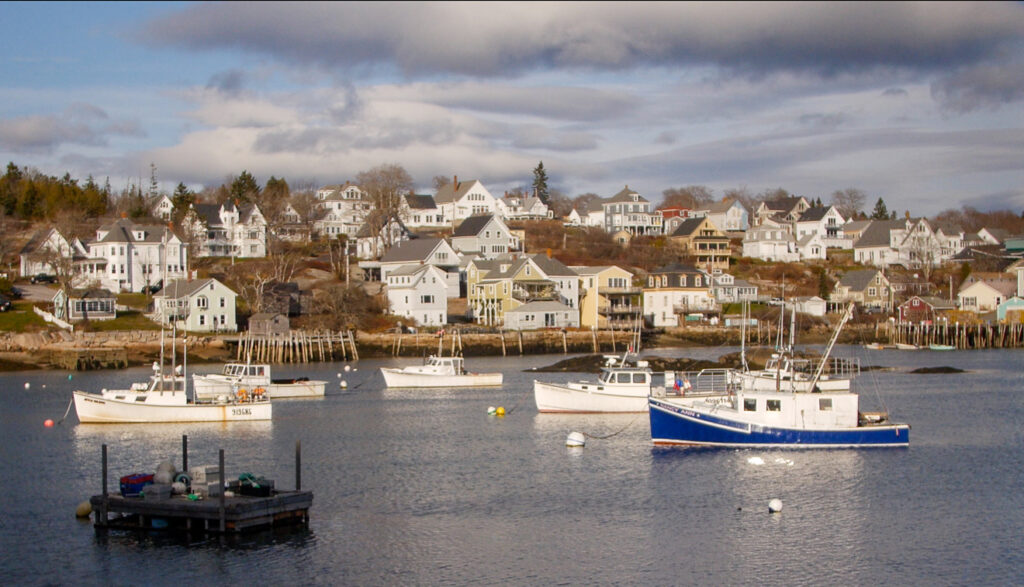
Navigating change: Cultivating resilience in fisheries and coastal communities
April 2021
Joshua Stoll‘s passion for community fisheries led him to co-found the Local Catch Network, and to his current project investigating resilience in the Maine lobster fishery.
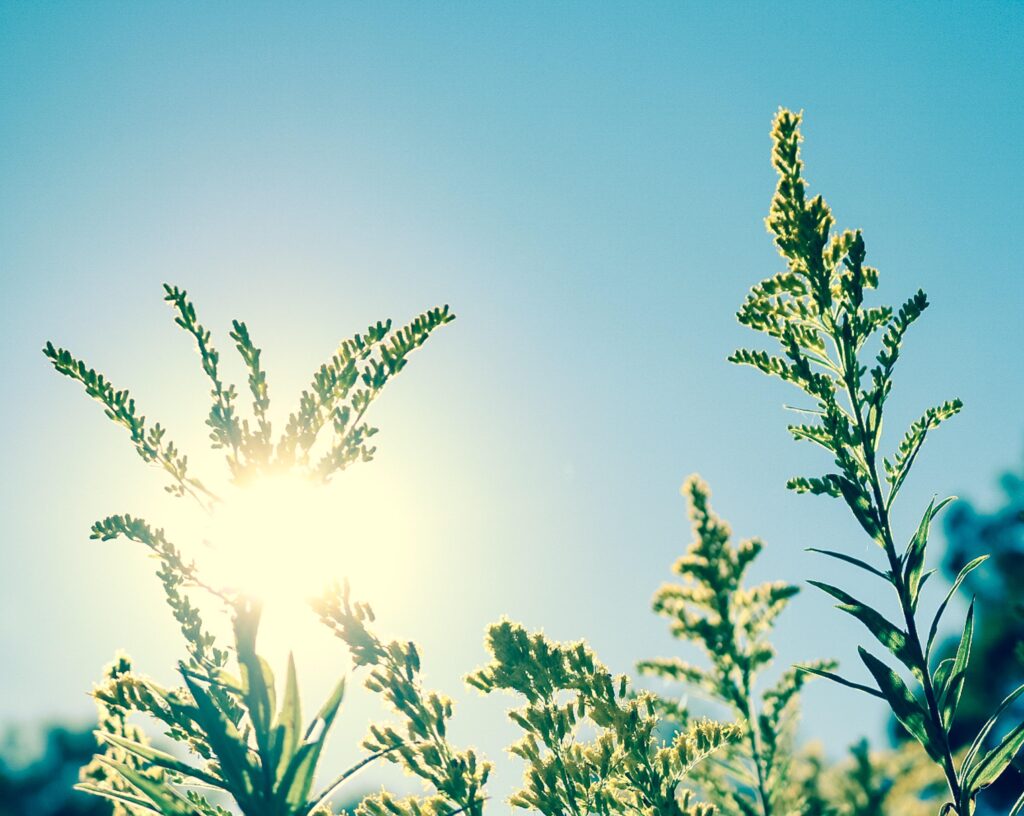
Let the sun shine in: Developing tools for community solar in Maine
March 2021
Sharon Klein‘s research and teaching center on the technical, economic, environmental, and social tradeoffs inherent in sustainable energy decision-making, including solar and other forms of renewable energy. Her current focus is on “community solar,” and how people, organizations, and communities can weigh their options and find the solutions that work best.
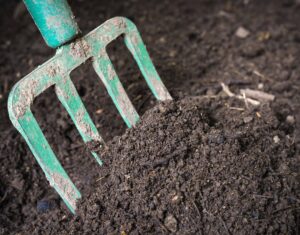
Less waste but is it safe? Anticipating risks in food waste recovery
February 2021
We’re making progress in moving toward a more circular food system, which has many economic, environmental, and social benefits. Recent research looks at potential risks in food waste recovery so it can be done safely and sustainably.

2020 Mitchell Center Sustainability Awards
January 2021
Mitchell Center Sustainability Awards have been presented annually since 2013. The awards are designed to recognize and celebrate the accomplishments of researchers, students, and external partners who have helped advance the values and principles at the heart of the Mitchell Center’s stakeholder-engaged, solutions-focused, interdisciplinary projects and partnerships.
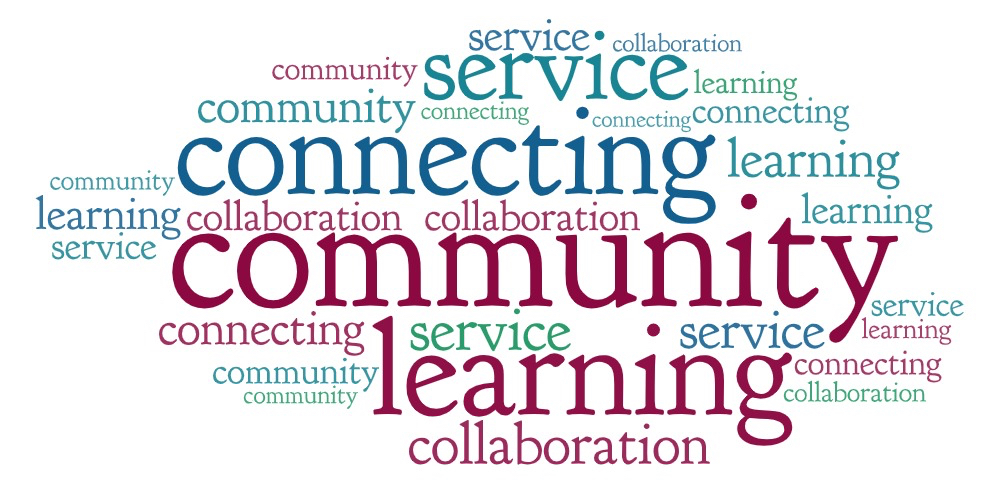
Connecting community and classroom
January 2021
Mitchell Center Senior Fellow Linda Silka and colleagues from UMaine Machias worked with graduate students and faculty on incorporating Community-Based Learning (CBL) in their courses and curricula.
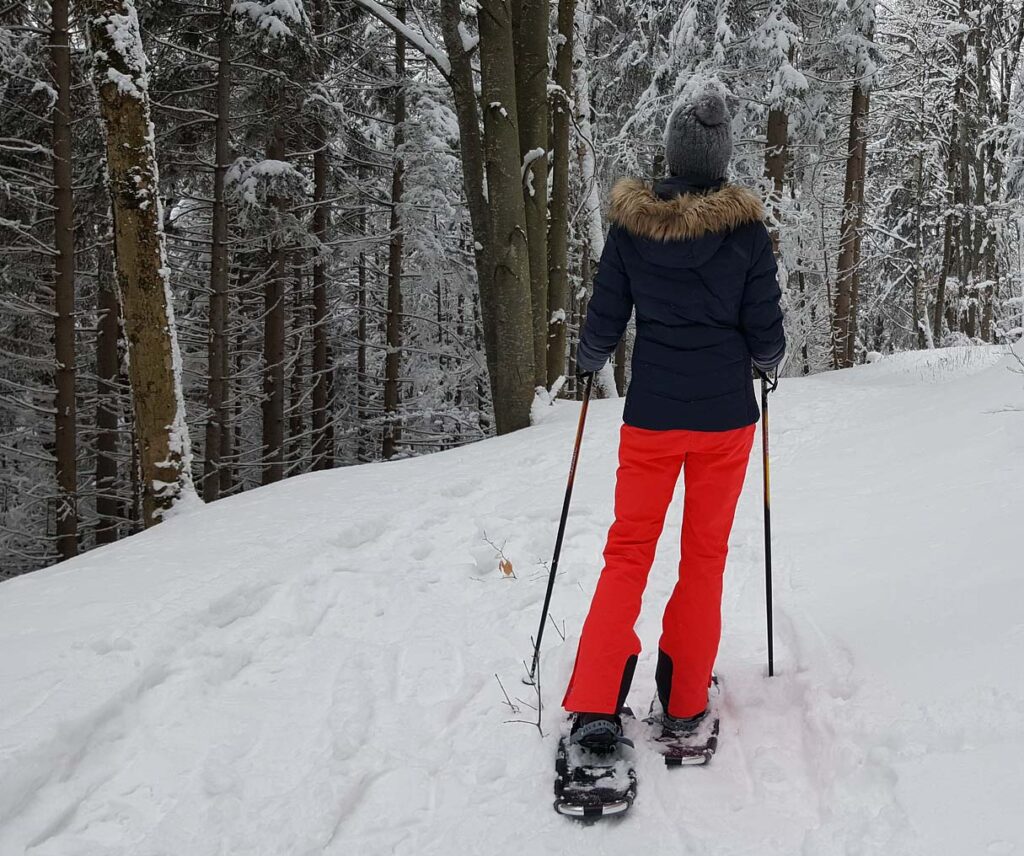
‘We’re all in this together’: Students lead climate-planning project
December 2020
UMaine graduate students often undertake research, whether their field is economics, ecology or anthropology. Rather than just participating in research, however, a team of graduate students is leading an innovative new climate-planning project, funded by a Mitchell Center seed grant.
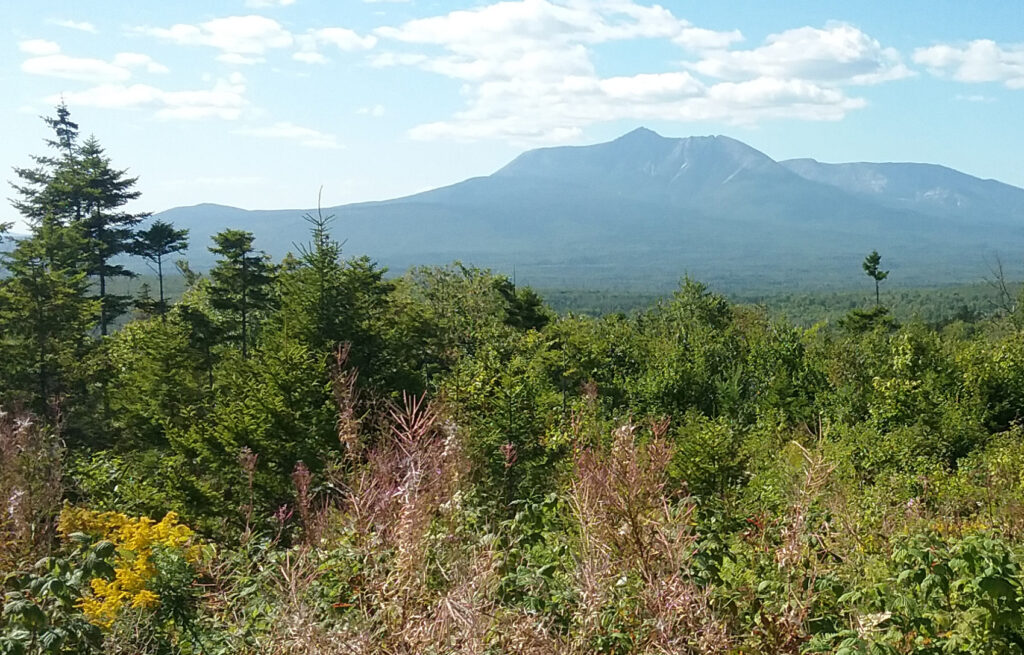
Challenges and change: Cultivating resilience in rural communities
September 2020
Papermaking has been important not just for the economy of the Katahdin region in northern Maine, but for its social and cultural identity. The industry’s decline has been devastating. Adam Daigneault led a collaborative project to help the region assess its resilience and chart a path forward.
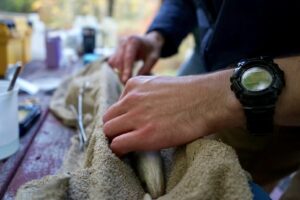
Eels and energy: Can we have both?
August 2020
UMaine graduate student Matthew Mensinger has studied the hazards American eels face from hydroelectric dams and in search of solutions that help eels survive while preserving power generation.
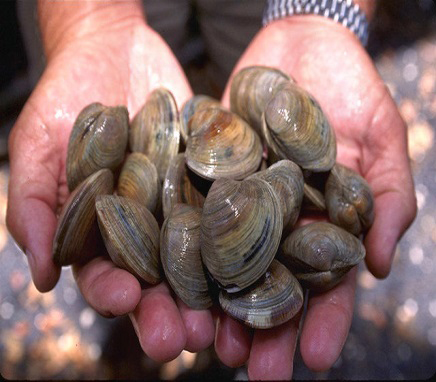
‘A fishery worth investing in’
July 2020
Shellfishing is important to the economies, cultures and traditions of communities all along the Maine coast. At Shellfish Focus Day, part of the annual Maine Fishermen’s Forum, shellfish harvesters, scientists, municipal leaders, educators, and representatives from state agencies come together to connect and learn how to help shellfishing communities thrive. Bridie McGreavy, Gabrielle Hillyer, and colleagues share their research and education efforts as part of the Mitchell Center’s Strengthening Coastal Economies project.
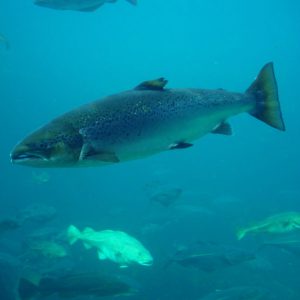
The art of collaboration in natural resource management
June 2020
Atlantic salmon are in trouble. Can effective collaboration help restore this iconic species? UMaine graduate student Melissa Flye researches how people and agencies work together and communicate in salmon restoration efforts.
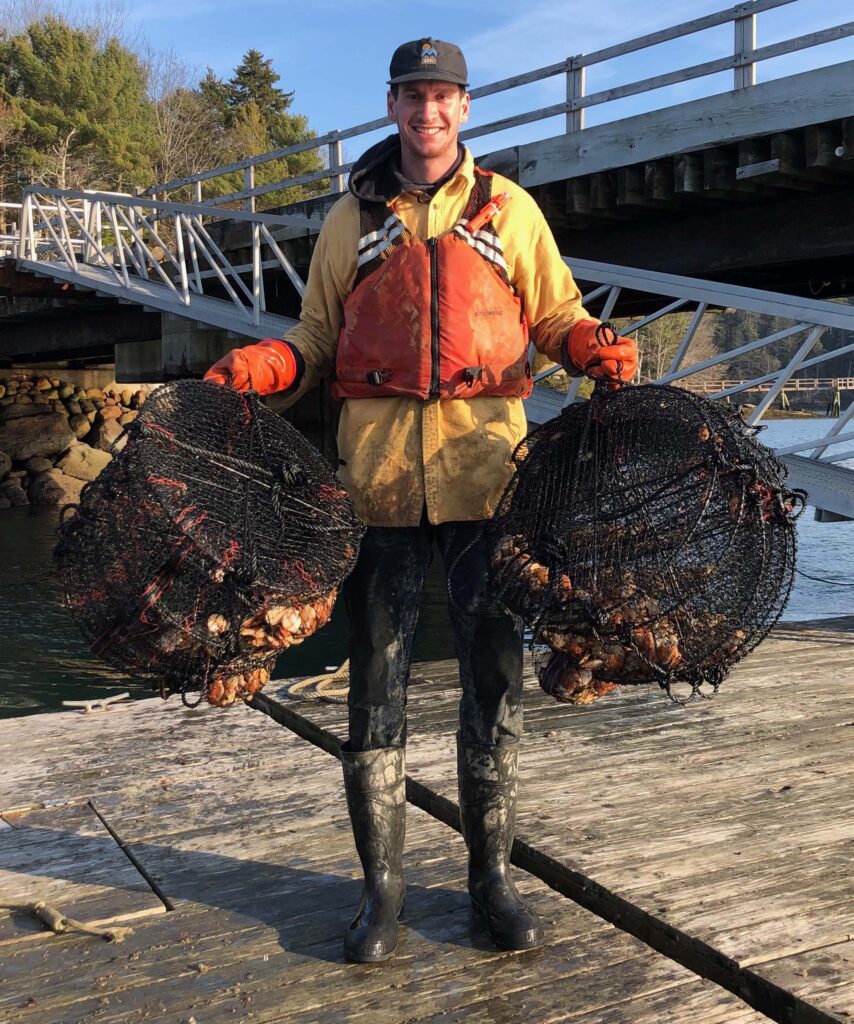
Strengthening Coastal Economies broadens shellfish focus to include oysters, scallops and mussels
June 2020
While softshell clams remain a priority focus due to their economic, ecological, and cultural value, in 2019 the Strengthening Coastal Economies project broadened its focus to include sea scallops, mussels, and oysters, all of which are high-value fisheries in Maine.
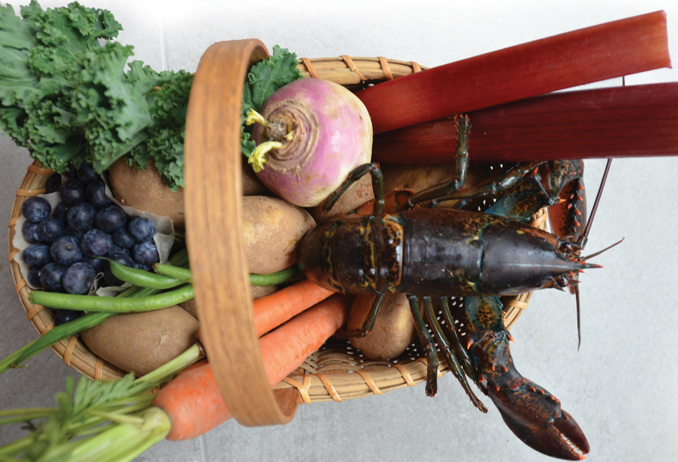
Helping Maine businesses find food waste solutions
April 2020
On November 18, 2019, the Maine Food Production Leadership Council held its first work session, led by faculty and students involved in the Mitchell Center project, Food Waste Management: Empowering Maine Businesses Toward Sustainability. Since that meeting, the students involved with the project have researched potential solutions for reducing food waste and food insecurity in Maine. Their next step is to present these potential solutions to the Council and garner feedback on how they might work in Maine.
